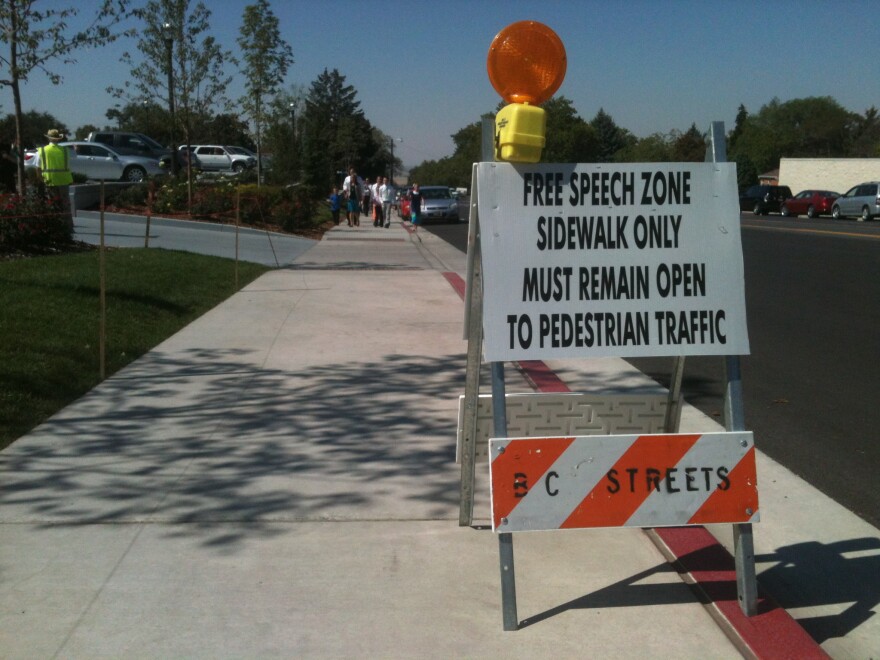The newest LDS temple in Brigham City has drawn a lot of attention. It can be seen from afar as you enter the city in northern Utah. Its alabaster appearance draws your eye directly to a structure considered sacred by members of the LDS faith. Each day as many as 18,000 guests enter the doors during a public open house that concludes Saturday, giving those interested a rare opportunity to peek inside before the official dedication on September 23. At that time the doors will close to general entrants.
For Sandy resident Randy Sweet, who is not a member of the LDS church, this isn't the first time he's taken an LDS temple tour. But on this day, he wasn't walking Brigham City's sidewalks to get a better view of the building...
"We're out here spreading the message that compares the differences between biblical Christianity and Mormonism."
Sweet considers himself a veteran LDS temple opening demonstrator. He says he's helped distribute what he describes as "biblically-based literature" at 13 different LDS temple sites and today he represents the Main Street Church in Brigham City, which until Friday has been forced to limit activity to 2 lightly trafficked sidewalks.
"Most of our interactions have been fairly civil. We think that it's critical for people to see the differences because there are some huge differences that have a bearing on one's eternity depending on what camp you're in."
The Christian Church and the ACLU of Utah have filed a lawsuit against Brigham city claiming constitutional rights are being violated because of a free speech zone ordinance. John Mejia is Utah legal director for the ACLU of Utah:
"The ordinance says that any time you want to protest you have to request a permit and then the city may establish a free speech zone with total discretion. There's nothing in the ordinance that limits it to public property. I think it's a fair reading of the ordinance to say that they could even try to require free speech ...even if it's private property."
Just yesterday, Sweet and others wanting to share their message, were forced to follow the free speech ordinance Brigham City community and economic development manager Derek Johnson says was put into place to help keep special event permit holders like the LDS church and the general public safe.
"At the temple site the necessity on the speech zone...we were just trying...we have large crowds, large numbers of people and it was just a way to let them hand out their material but also to provide for public safety around the block, especially in the loading/unloading zone. We have a lot of traffic on the street, barricaded in special lanes right now, high groups of people, large volumes of people. We're just trying for public safety overall..."
Sweet's reply...
"I think that's smoke to be totally honest with you. You can see there's only a couple of us out here right now; at the most there's probably only been 4 people out here the whole time. If we were to stand over on the front street out there off of Main Street or here right by the buses there's no safety issues as far as us impeding anybody."
In order to avoid costly litigation and, says Johnson, once members of the Main Street Church agree to limit participation to 4 protestors on each sidewalk, the city has decided not to enforce the free speech ordinance during the Brigham City temple open house.
"It's not a global settlement of the entire case. There is this cloud there now still because there's a law in the books still that says you need a permit."








